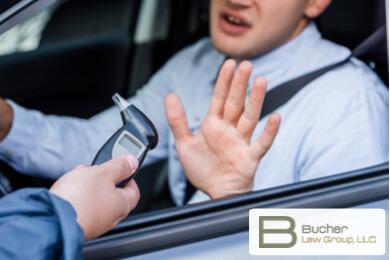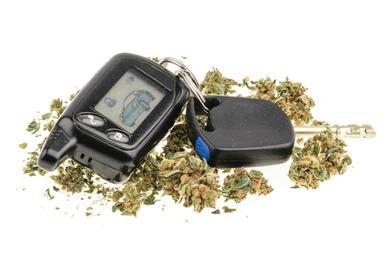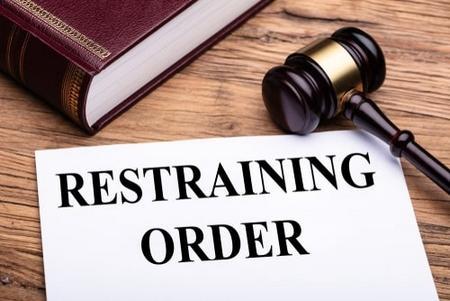Recent Blog Posts
Can I Refuse a Breathalyzer Test in Wisconsin?
 Drivers in Wisconsin and throughout the United States understand that it is illegal to drive while under the influence of alcohol or drugs. Doing so may result in an arrest by a police officer and charges of operating a vehicle while intoxicated (OWI). Drivers who have been pulled over and are suspected of driving while intoxicated will want to understand their rights and the steps they can take to protect themselves from consequences. Tests used to measure a driver’s blood alcohol content (BAC) are one issue that these drivers may need to address, and it is important to understand whether a person can refuse these tests or whether they should consent to testing.
Drivers in Wisconsin and throughout the United States understand that it is illegal to drive while under the influence of alcohol or drugs. Doing so may result in an arrest by a police officer and charges of operating a vehicle while intoxicated (OWI). Drivers who have been pulled over and are suspected of driving while intoxicated will want to understand their rights and the steps they can take to protect themselves from consequences. Tests used to measure a driver’s blood alcohol content (BAC) are one issue that these drivers may need to address, and it is important to understand whether a person can refuse these tests or whether they should consent to testing.
BAC Tests and Implied Consent
In Wisconsin and other states, drivers are considered to have given consent to chemical testing of their BAC when they obtained a driver’s license. This means that a driver could potentially face consequences for refusing to take a BAC test. However, it is important to understand that the implied consent law applies to tests that are performed following an arrest rather than to roadside tests performed by a police officer prior to an arrest.
When Can I Face Criminal Charges for Theft, Robbery, or Burglary?
 There are multiple types of property crimes in which a person may be accused of taking money or property that belongs to someone else. These cases can result in serious criminal charges. Depending on the circumstances of a case, a person may be charged with a misdemeanor or felony offense, and if they are convicted, they could be required to serve time in prison, pay fines or restitution, or follow certain requirements during a period of probation. A person will want to understand the specific offense they are accused of, and an attorney can advise them of their best options for defense.
There are multiple types of property crimes in which a person may be accused of taking money or property that belongs to someone else. These cases can result in serious criminal charges. Depending on the circumstances of a case, a person may be charged with a misdemeanor or felony offense, and if they are convicted, they could be required to serve time in prison, pay fines or restitution, or follow certain requirements during a period of probation. A person will want to understand the specific offense they are accused of, and an attorney can advise them of their best options for defense.
Property Crimes in Wisconsin
Offenses in which a person is accused of taking or misappropriating someone else’s property may fall into one of the following categories:
-
Theft - This offense covers any situations in which someone takes or obtains property from its rightful owner. In addition to stealing money or property, theft may involve the misappropriation of funds through embezzlement or other illicit activities, or a person may be accused of making false statements or misrepresenting facts with the intent to defraud someone. If the money or property obtained through theft is worth $2,500 or less, a person may be charged with a Class A misdemeanor. Felony charges will apply in cases involving amounts of over $2,500, and for higher amounts, a person may face more serious felonies that can result in longer prison sentences and higher fines.
Can I Face Criminal Charges for Injuring Someone in a Car Accident?
 Being involved in a car accident can cause a number of difficulties in a person’s life. In addition to dealing with injuries and vehicle repairs, a person who may have been at fault for a collision may worry that they could face other consequences. This is especially true if an accident resulted in injuries to someone else, and in these cases, a person may be concerned about potential criminal charges that may apply. An experienced attorney can help people in these situations understand the specific charges they may face and their options for defense.
Being involved in a car accident can cause a number of difficulties in a person’s life. In addition to dealing with injuries and vehicle repairs, a person who may have been at fault for a collision may worry that they could face other consequences. This is especially true if an accident resulted in injuries to someone else, and in these cases, a person may be concerned about potential criminal charges that may apply. An experienced attorney can help people in these situations understand the specific charges they may face and their options for defense.
Cases Where Car Accidents May Lead to Criminal Charges
A person who is at fault for a car accident may be held liable for the damages suffered by other people, although they usually will not be charged with a crime unless they acted egregiously and put others at risk of harm. A person may face criminal charges for causing injuries to others in cases involving:
UPDATE: Open Carry Laws in Wisconsin: What You Should Know

Originally published: March 29, 2019 -- Updated: September 17, 2021
UPDATE: The state of Wisconsin does permit the open carry of firearms as described below, although there are a few cases where a person may be restricted from carrying a loaded weapon in public, such as when a person has been convicted of a felony or a domestic abuse charge. Gun owners should also be aware of the situations in which they could face criminal charges based on how a weapon was used. The offense of “endangering safety by use of a dangerous weapon” may apply in the following situations:
-
If a person puts someone else at risk of harm when handling or operating a weapon, they may be charged with a Class A misdemeanor.
-
If a person carries or uses a firearm while under the influence of alcohol or drugs, this is a Class A misdemeanor offense.
What Consequences Will I Face if I Am Arrested for Domestic Abuse?
 Cases involving accusations of domestic violence can be very complicated and emotional. While many of these cases arise out of legitimate concerns about the safety of family members, others may involve false accusations or reports by neighbors or family members who do not fully understand a situation. Those who have been arrested because of alleged domestic abuse will need to understand their rights, the issues that may affect them going forward, and how they can defend against criminal charges.
Cases involving accusations of domestic violence can be very complicated and emotional. While many of these cases arise out of legitimate concerns about the safety of family members, others may involve false accusations or reports by neighbors or family members who do not fully understand a situation. Those who have been arrested because of alleged domestic abuse will need to understand their rights, the issues that may affect them going forward, and how they can defend against criminal charges.
Arrests in Domestic Abuse Cases
Wisconsin law requires a law enforcement officer to perform an arrest if they have reasonable cause to believe that a person has committed criminal acts that may be considered domestic abuse and that one of the following is true:
-
It is likely that the person will commit continued acts of abuse against the alleged victim.
When Can a Person Face Computer-Related Sex Crime Charges in Wisconsin?
 Among the different types of criminal offenses that a person may be accused of committing, sex crimes are some of the most serious. These charges carry significant consequences, including large fines and extended sentences in prison. A person convicted of a sex crime may be required to register as a sex offender, which will affect their ability to find a job and a place to live. Even if a person is not convicted, their reputation and relationships with others may be permanently affected. Some people may be unaware of the potential ways that using computers or the internet could lead to sex crime charges. Those who are accused of these types of offenses can work with an attorney to determine their best options for defense.
Among the different types of criminal offenses that a person may be accused of committing, sex crimes are some of the most serious. These charges carry significant consequences, including large fines and extended sentences in prison. A person convicted of a sex crime may be required to register as a sex offender, which will affect their ability to find a job and a place to live. Even if a person is not convicted, their reputation and relationships with others may be permanently affected. Some people may be unaware of the potential ways that using computers or the internet could lead to sex crime charges. Those who are accused of these types of offenses can work with an attorney to determine their best options for defense.
Sexual Offenses Involving Computers and the Internet
There are multiple ways that a person’s use of computer systems may result in sex crime charges. These offenses may fall into one of the following categories:
Can I Be Charged With OWI After Using Marijuana or Prescription Drugs?
 Driving under the influence, which is known as Operating While Intoxicated or OWI in Wisconsin, is a serious criminal offense, and a conviction can lead to significant fines, the revocation of a person’s driver’s license, and a prison sentence. While most people understand the dangers of driving after drinking alcohol and the consequences they may face for doing so, some may not realize that they can face the same charges if they drive while under the influence of marijuana or certain types of prescription drugs, such as opioids. By understanding how Wisconsin law addresses these situations and working with an attorney who is experienced in defending against these types of charges, a driver can determine their best options for defense following an arrest for OWI involving marijuana or other drugs.
Driving under the influence, which is known as Operating While Intoxicated or OWI in Wisconsin, is a serious criminal offense, and a conviction can lead to significant fines, the revocation of a person’s driver’s license, and a prison sentence. While most people understand the dangers of driving after drinking alcohol and the consequences they may face for doing so, some may not realize that they can face the same charges if they drive while under the influence of marijuana or certain types of prescription drugs, such as opioids. By understanding how Wisconsin law addresses these situations and working with an attorney who is experienced in defending against these types of charges, a driver can determine their best options for defense following an arrest for OWI involving marijuana or other drugs.
Wisconsin OWI Laws Regarding Drugged Driving
Can Traffic Violations Result in the Loss of a Wisconsin CDL?
 While traffic tickets can be troublesome for any driver, they can be especially problematic for drivers of commercial vehicles. These drivers are required to complete additional training and pass a variety of tests to obtain a commercial driver’s license (CDL), and maintaining a valid CDL is necessary to be able to continue working in this profession. Because of this, commercial drivers will usually be looking to avoid any activities that could threaten their CDL and their livelihood. Drivers should be aware that certain traffic violations could lead to the disqualification of their CDL, meaning that they will be unable to drive a commercial vehicle while their license is disqualified.
While traffic tickets can be troublesome for any driver, they can be especially problematic for drivers of commercial vehicles. These drivers are required to complete additional training and pass a variety of tests to obtain a commercial driver’s license (CDL), and maintaining a valid CDL is necessary to be able to continue working in this profession. Because of this, commercial drivers will usually be looking to avoid any activities that could threaten their CDL and their livelihood. Drivers should be aware that certain traffic violations could lead to the disqualification of their CDL, meaning that they will be unable to drive a commercial vehicle while their license is disqualified.
Wisconsin Traffic Violations and CDL Disqualification
The most common violation that could lead to a CDL disqualification is drunk driving, which is referred to in Wisconsin as Operating While Intoxicated or OWI. Commercial drivers have a lower limit than other drivers for the legal blood alcohol concentration (BAC) that they can have while driving. If a driver has a BAC of .04 percent or higher when operating a commercial motor vehicle, they could not only face OWI charges, but they will also be subject to a one-year CDL disqualification. A three-year disqualification will apply in cases involving a HAZMAT violation in which a person was transporting hazardous materials.
Kayleigh’s Law Would Allow Sexual Assault Victims to Petition for Lifetime Restraining Orders
 A new bill has been introduced to Wisconsin lawmakers that would allow the victims of sexual assault to petition the court for a lifetime restraining order against their convicted perpetrator. “Kayleigh’s Law” was recently presented in both the House and the Senate and, if approved, would give victims the ability to obtain a restraining order against their assaulter even after the assaulter’s probation has ended. The law was recently signed into law in Arizona, the first state in the country to do so.
A new bill has been introduced to Wisconsin lawmakers that would allow the victims of sexual assault to petition the court for a lifetime restraining order against their convicted perpetrator. “Kayleigh’s Law” was recently presented in both the House and the Senate and, if approved, would give victims the ability to obtain a restraining order against their assaulter even after the assaulter’s probation has ended. The law was recently signed into law in Arizona, the first state in the country to do so.
Sexual Assault Victims
According to state statistics, 20 percent of Wisconsin high school students say that someone has forced them to engage in sexual acts they did not want to participate in. Nationally, one in three women and one in six men have been victims of sexual violence, and 90 percent of victims know the person who sexually assaulted them.
Wisconsin Expands DNA Collection Law
 Many criminal cases are “solved” by police because of DNA evidence. DNA is a complex molecule that contains an individual’s unique genetic code. With the exception of identical twins, no two people share the same genetic code.
Many criminal cases are “solved” by police because of DNA evidence. DNA is a complex molecule that contains an individual’s unique genetic code. With the exception of identical twins, no two people share the same genetic code.
By Wisconsin law, if you are arrested for a violent crime, police are required to take a sample of your DNA. A new law recently signed by the governor extends the sample requirement to anyone who moves to Wisconsin who has previously been placed on parole, probation, or extended supervision in another state.
DNA Requirement
In 2015, Wisconsin passed a law that made it mandatory for any person arrested for a violent felony to submit their DNA to be stored in the Wisconsin DNA Databank. This law applies to anyone who is arrested for arson, burglary, child abuse, homicide, robbery, sexual assault, and other violent crimes. These samples are not allowed to be processed unless and until a judge rules that police have probable cause a crime was committed.














 262-446-9222
262-446-9222 262-446-9885
262-446-9885






